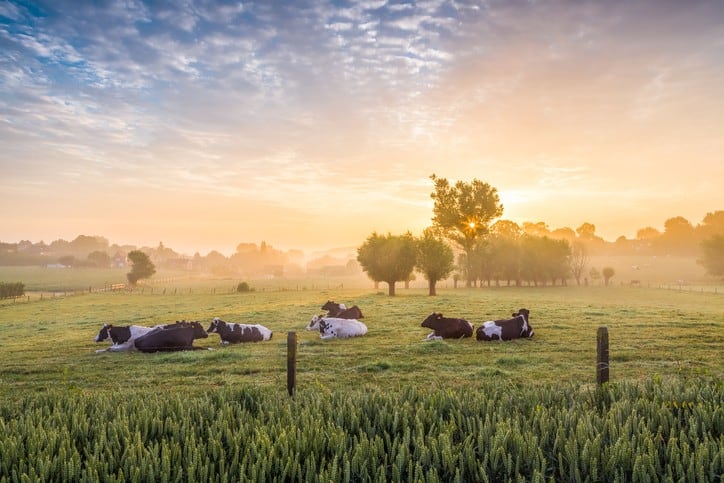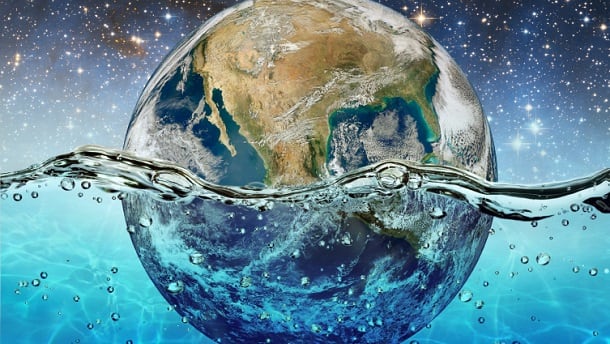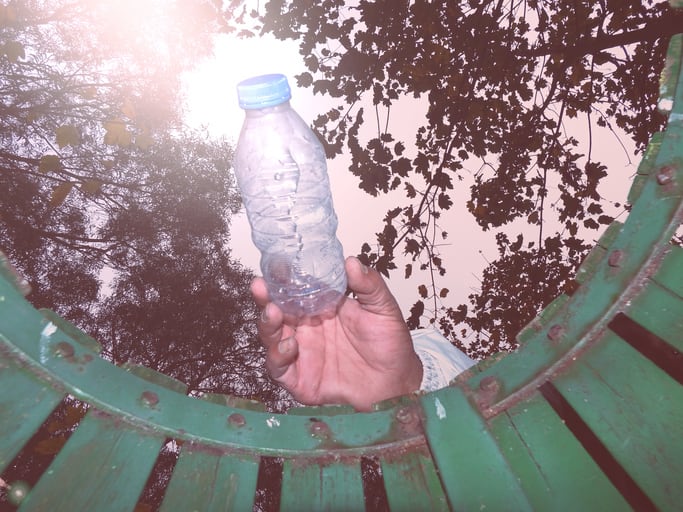The company said it is ‘massively accelerating’ its investments to shape a ‘fully climate-powered business model’.
“We believe that we have reached a tipping point where our brands will be incredibly stronger if climate is an ally and not an enemy,” CEO Emmanuel Faber explained. “This year is pivotal towards this shift.”
Danone’s commitment to action on climate change is nothing new, Faber noted. “We've been pioneering and making pretty bold commitments to transition to low-carbon economy for a long time.”
In 2009, the company initiated work to improve the carbon profile of its business. It aligned with the 2015 Paris Climate Change agreement, signed up to the 2 degrees Science Based Targets in 2017 and then updated to the 1.5 degrees pledge. Danone also set the goal of becoming carbon neutral by 2050 – with an ambition to reach ‘peak’ carbon emissions by 2025.
The company revealed this week that it has already hit this target, five years ahead of schedule. “Twenty-seven million tons is going to be our peak, that was last year, of carbon externalities,” Faber reported.
Faber views this progress in the context of what Danone calls the ‘food revolution’, a shift in attitudes to the food system that is disrupting established operating models.
As part of its Danone 2020 strategy, launched in 2014, the group invested ‘heavily’ in areas like improving trust (with a focus on brands becoming B Corp certified); ‘efficiency and discipline’; and the adoption of ‘planetary diets’ as well as natural and local trends. Big moves in this space included the 2017 acquisition of WhiteWave Foods, which brought with it plant-based brands such as Alpro in Europe.
According to management’s assessments, these efforts have paid off and Danone enters 2020 ahead of the ‘new normal’ when it comes to trust and sustainable, natural diets. Investment behind these pillars will therefore remain level through to 2025, the company noted. Danone already has a ‘very solid’ plan to invest a further €5bn in plant-based by 2025.
However, there are areas that Danone believes there is clear opportunity to do more to reduce its carbon footprint and align with consumer trends, particularly around packaging and digital innovation. And it is here that Danone will focus the bulk of its €2bn investment from 2020.
“We see 2020 as the moment where we need to interrupt the fifth year and final year of our 2020 plan, because the industry is undermined, our categories are undermined, by either visible or invisible challenges.” - Faber
Faber said ‘opportunities’ for Danone are related ‘in one way or another’ to climate and the perception of climate in social norms. “We need to really anticipate, to fully meet these opportunities and… stay ahead of the curve in 2025.”
Packaging: ‘We were caught off guard’
While it was on the radar, packaging was ‘less of a priority’ for Danone’s 2020 strategy. “Clearly here, we are caught off guard - as I think frankly everybody else was,” Faber conceded.
Around half of Danone’s investment in climate innovation will be focused on packaging innovation, souring and value chain to enhance the group’s value proposition and ‘deliver superior competitiveness’.
According to Danone’s assessment, packaging is a hot topic in markets like France, Germany and the UK and this is putting a strain on its brands. “People don't want to be seen with a plastic bottle anymore,” Feber observed.
For its water business, the group aims to move away from virgin PET by 2025, switching to rPET in Europe. In April, rPET water bottles will be rolled out across ‘most’ formats in France, the full range in Germany and all on-the-go Evian formats in the UK.
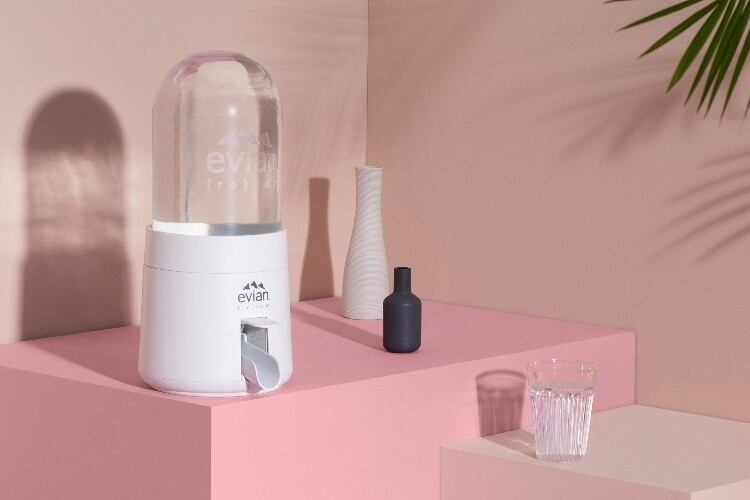
The Evian and Volvic brands will both become ‘climate neutral’ this year.
Other innovations include the introduction of metal bottles and cans for brands like Evian and Bonafont and a switch to tetra for Volvic’s kids range.
Home and new on-the-go models are poised to ‘completely change the paradigm’ of water packaging, Faber predicted.
While the group’s water business might be a high profile plastic user, Danone’s ‘boldest commitment’ can be seen in yogurts where it aims to move to zero polystyrene packaging by 2025 globally – and by 2024 in Europe.
The shift will see Danone move to PET and rPET ‘as soon as possible’, with sourcing of polylactic acid or polylactide (PLA) and other bio-sourced materials starting in 2020.
And progress is already under way. Faber elaborated: “Les 2 Vaches, [our] leading organic yogurt brand in France… has already bio-sourced starch-based polymer packaging.”
In the UK, the company will launch its ‘first ever reusable glass pot’ as part of the Loop programme.
By 2021, the plant-based Alpro brand will move out of PS to paper cups and plant-based drinks cartons.
“We believe that we will reaccelerate our brand competitiveness on packaging, which becomes a clear factor of choice for consumers.”
To drive further progress, Danone also announced the creation of a packaging transformation accelerator with the intent of investing up to €200m by 2025 in co-designed ‘new business models, new materials and recycling solutions’.
Developing digital for climate-smart value chain
Elsewhere, Danone plans to invest in digital innovations that it believes will strengthen its omnichannel reach and end-to-end value chain.
On omnichannel, Faber said that the company’s ability to ‘compete everywhere’ is ‘not there yet’. Danone has set itself the task of doubling e-commerce sales by 2020. “It is a matter of execution, processes and systems.” Likewise, Faber continued, on the end-to-end value chain ‘we are not there yet either’.
“There's clearly a need for acceleration,” he suggested, adding that the company needs to get ‘much more radical’ on its use of digital and data technologies.
Danone is therefore kicking off a ‘big project’ that will but data are the core of its business model, end-to-end sourcing and omnichannel. “Fundamental to that is the pursuit of our sourcing model in climate-efficient sourcing for planetary diets and regenerative agriculture… We need to be much better in terms of our climate resilience and overall execution in the business model, end-to-end value chain and omnichannel. And this will be enabled by the fact that we are starting a big project on putting data at the core of what we do.”
Danone will drive a ‘transformation’ of its value chain that will allow it to be more ‘flexible and precise’ in demand planning, cost reduction, waste reduction and climate reduction, Faber elaborated.
Case study: Digitalisation in Opole, Poland
Danone has digitalised its baby food factory in Opole, Poland. The facility has seen investment in new technologies that have enabled it to go 100% paper-free.
The move has delivered a 10% increase in cost efficiency, a 12% reduction in CO2 emissions, and a 6% increase in batch size flexibility.
Danone believes there is an opportunity to leverage its factory footprint in dairy by creating ‘hybrid’ capabilities where plant-based products are manufactured in the same facility.
It is also rolling out ‘next level’ integrated business services powered by data and AI. Over 3-4 years, the company believes the investment will enable it to move to a lower cost base.
Regenerative remains a focus
If Danone is to successfully drive down its carbon footprint, the group will have to maintain its focus on agricultural efficiency. Currently, 95% of its carbon emissions fall into scope 2 and 3 emissions, which are indirect activities. Agriculture along accounts for 60%.
“When we speak about regenerative agriculture, we're really talking about the core of what is at stake for the future of our business in terms of both financial business and values.
“Carbon in agriculture is not an externality for us. It's not about the planet, it's not about the next generation, it's really about our business.”
However, Faber said this does not mean there will be a ‘meaningful acceleration’ in regenerative agricultural investment because the company has already put a lot of the building blocks in place to drive change.
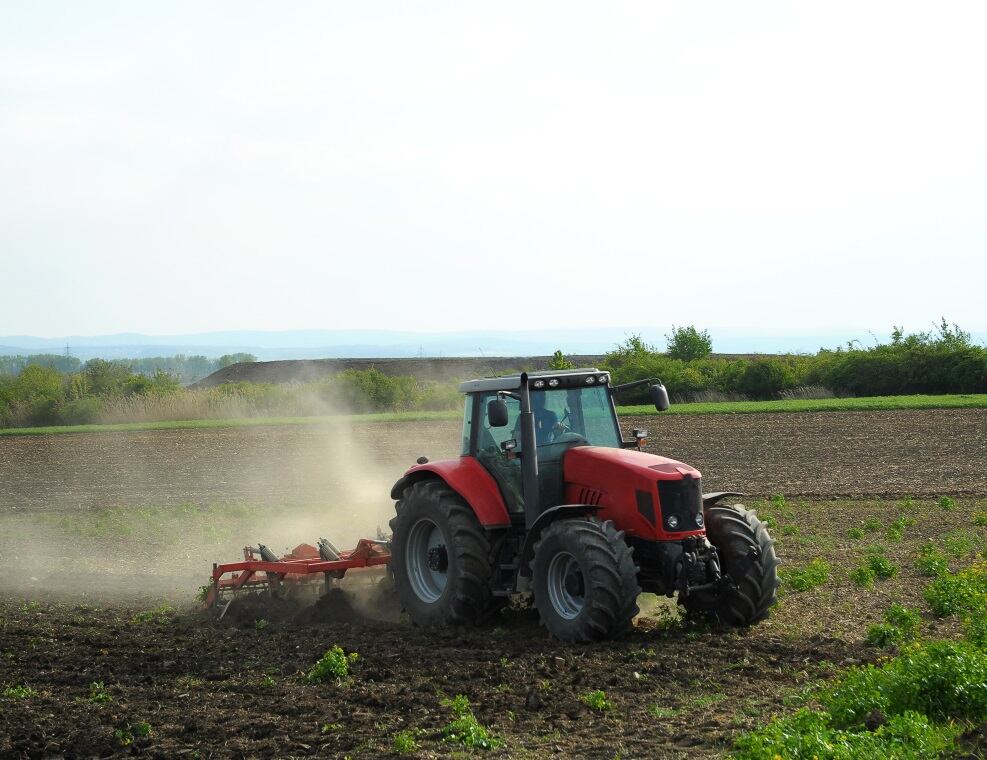
Danone has identified soil erosion due to an over-reliance of chemical pesticides and fertilisers as a core issue. “You cannot have healthy soils which will support the agriculture of tomorrow, if we do not put carbon back into the soil through regenerative practices,” Faber argued.
The company says it has identified solutions that both reduce the immediate and longer-term costs linked to degraded soils.
The availability of water is another concern that the agricultural sector will have to adapt to.
Looking to the domestic market, Faber provided an example: “In France there will not be a possibility to continue to farm corn in the south part of France, where it is today because there won't be water enough anymore which corn relies a lot on and temperatures will be too high. So that's a challenge. It means that that part of agriculture has got to change.
“But on the contrary, the temperature elevation is also creating opportunities. For instance, we've been able to start programs with our cattle raisers in Normandy for our dairy products and brands here, where they are growing soy locally, so we are producing in Normandy, instead of importing soy from Brazil.”
Supporting regenerative agriculture, and being transparent about its efforts, is already paying dividends for Danone’s brands, Faber contended.
In France, the group invested €40m over the last two years – a spend that Faber said has allowed its baby food brand Bledina to ‘regain consumer preference’. In just two-and-a-half years the brand has become a ‘close number two, nearly number one’ in the French organic baby food segment, which is growing at 35%.
“This is thanks to the program of regenerative agriculture transparency. The 5% of sales on this product range that are being invested every year in regenerative agriculture [are] driving consumer preference.”

